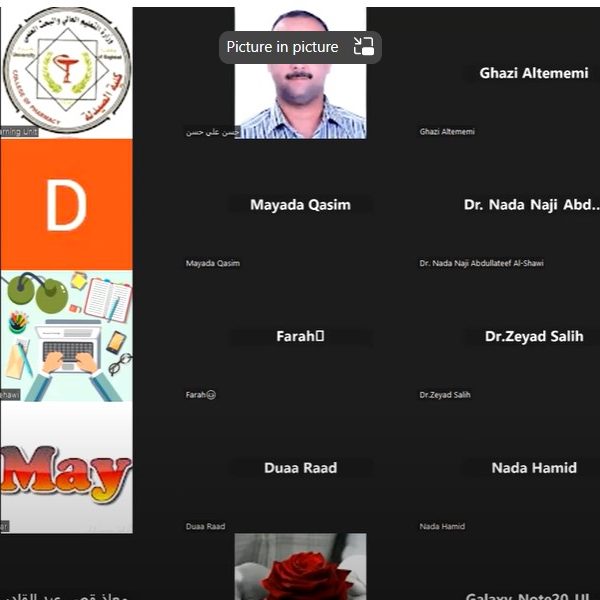Under the supervision of the Dean of the College of Pharmacy, Associate Professor Dr. Sarmed H. Kathum Alkhateeb, the Continuing Education Unit, in cooperation with the Ibn Sina Unit at the University of Baghdad/College of Pharmacy, held an electronic scientific workshop on the basics of using and conducting mixed methods in community pharmaceutical research, delivered by Assistant Professor Dr. Ali Azeez Ali, a faculty member at the Clinical Pharmacy Department. The workshop aimed to train researchers in the fields of community pharmacy and clinical pharmacy to use and conduct dual methods that combine well-known quantitative methods with qualitative methods, which the Iraqi researcher does not know much about. The workshop included various topics, such as the benefits of using dual research methods, their main types, requirements, and goals, and the purpose of mixing or using two different methods to complete one scientific research project. One of the most famous types is the combination of quantitative or traditional research, which relies on numbers and statistical results, with qualitative research, which relies on individual or group interviews with participants with experience in their field to hear their opinion and experience with the study. These qualitative interviews provide in-depth information about the subject that cannot be collected by research methods. Quantity. The speaker pointed out the necessity of training graduate students to conduct this type of research, which has become increasingly popular, especially in developed countries such as the United States, especially in the field of community and clinical pharmacy, which requires the researcher to listen to the opinions of those with expertise and experience and to document their interviews with an audio recording in which the sentences can be transformed. Expressions of results explain, complement, and add to the quantitative and clinical results. In other cases, interviews are conducted at the beginning of the research to form an initial experience and idea about the research before conducting the second part, which depends on collecting digital samples and analyzing them statistically. Introducing this type of study is crucial to increasing experience and expanding scientific research methods for professors and researchers in the community medical and pharmaceutical fields, which survey the opinions of patients, health care providers, or the public on a topic related to health services and others. The workshop was attended by many postgraduate students in the field of clinical pharmacy to learn information that they might use in completing their studies’ research. In conclusion, the attendees praised the workshop topic for helping to develop the skills and knowledge of researchers in Iraqi universities and postgraduate students in the field of community and clinical pharmacy.





